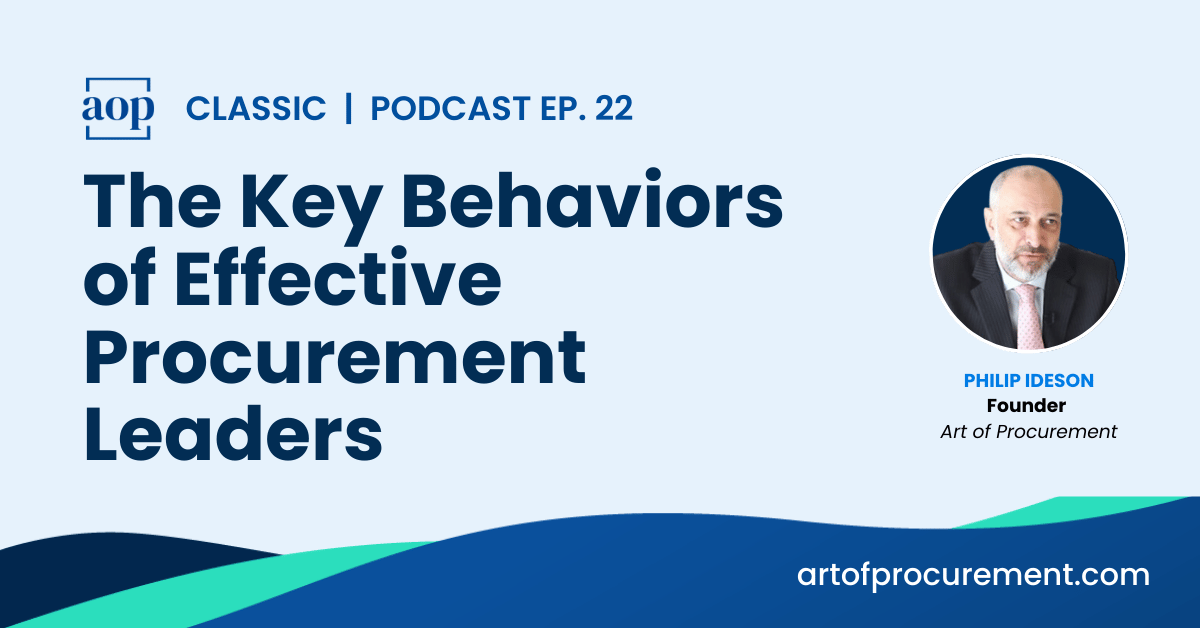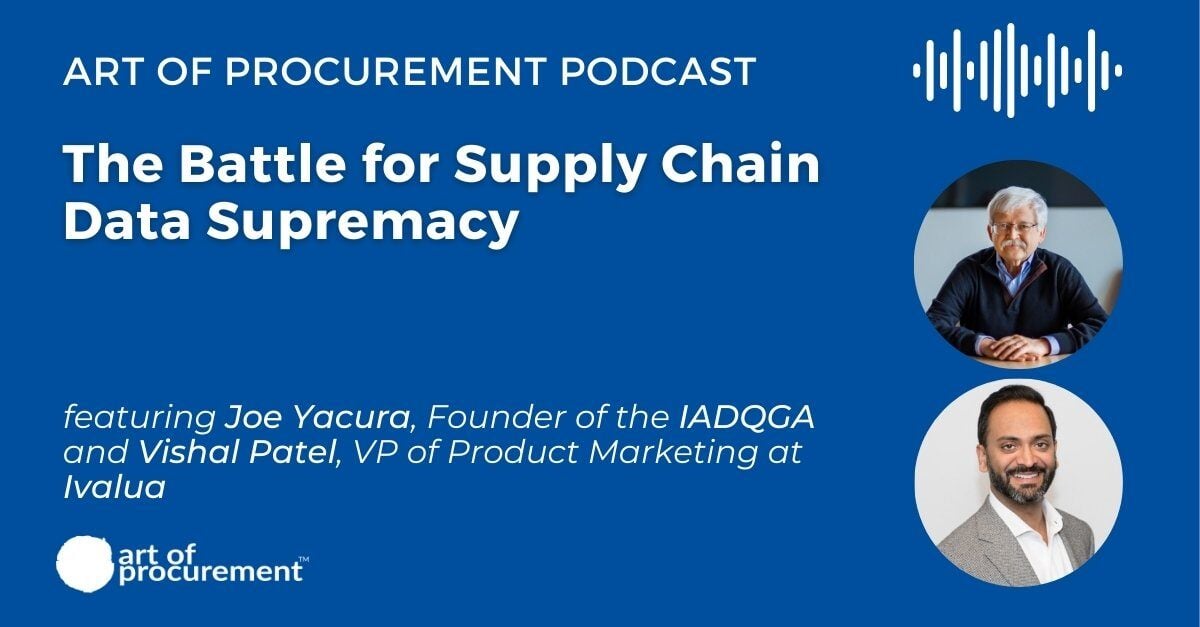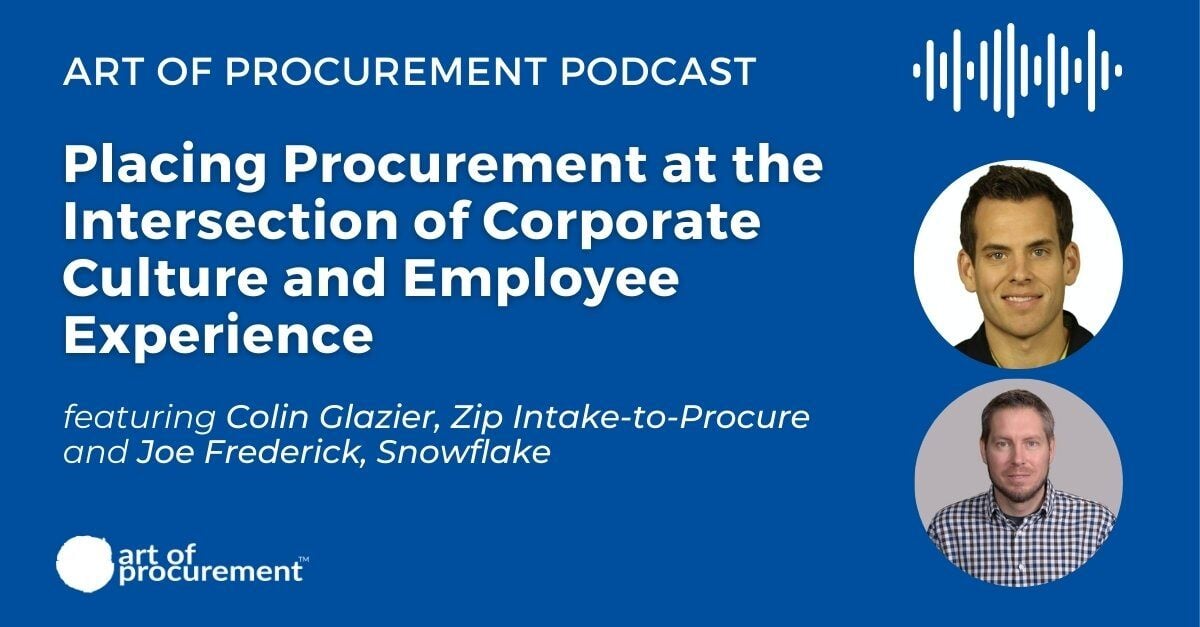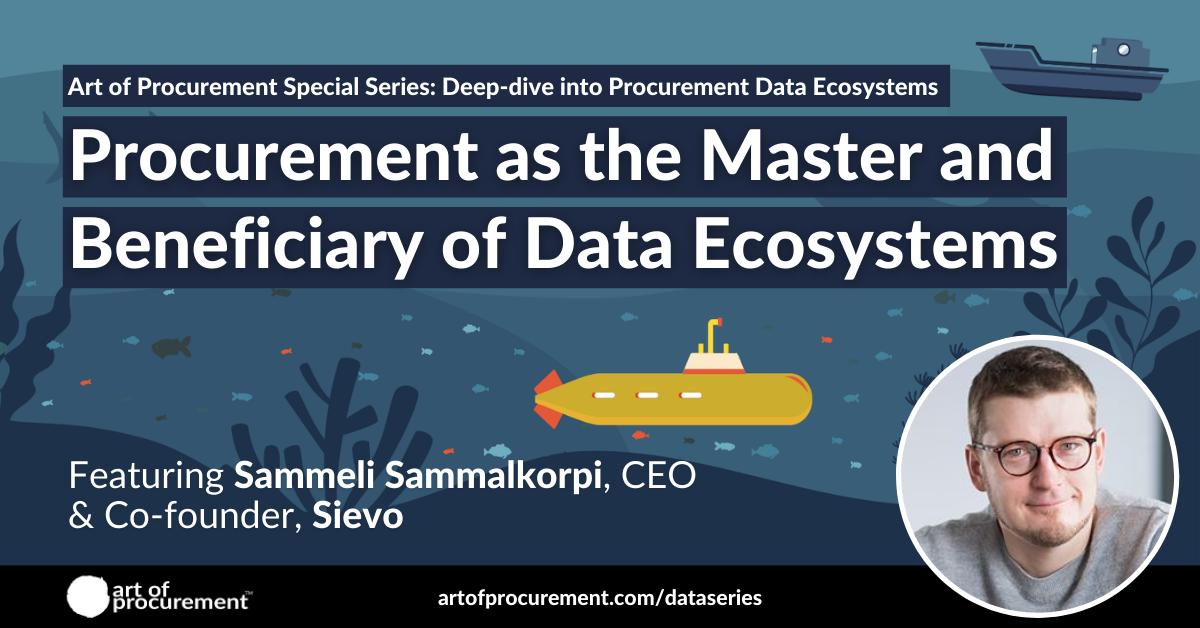1 min read
The Key Behaviors of Effective Procurement Leaders
Philip Ideson : Updated on December 9, 2024

On this weeks episode of The Art Of Procurement, my guest is Gerard Chick and we discuss the behaviors, habits and attributes that make procurement professionals and in-particular procurement leaders more effective in their job.
Gerard Chick is Chief Knowledge Officer for Optimum Procurement, a leading procurement outsourcing and consulting firm.
iTunes | Subscribe | Rate & Review
“If procurement does its job properly it makes the rest of the organization work smoothly because it is aligned.”
In this episode, you will learn:
- What the role continuing education should play in the role of a procurement professional. For someone who strives for a career in procurement, is it enough to learn on the job and open yourself up to diverse experiences? Should they look at broader further education such as an MBA? Or formal procurement specific education?
- What is the remit of a Chief Knowledge Officer
- The “as-a-service” economy in procurement outsourcing
- Procurement operating in a bubble vs. being aligned with the vision of the CEO
- How procurement can look at building capabilities when the vision is growth vs. margin improvement
- What business executives are looking for from their procurement teams today
- Major challenges that executives have with procurement teams
- How can a CPO start to build credibility with his executives if he doesn’t have that credibility today
- How a procurement professional can go about explaining the value that is being created, particularly with sceptical stakeholders or in environments where the procurement value proposition is not inherently understood
- How the procurement skillset is changing
- Is there a trend of bringing in non-procurement subject matter experts and teaching them procurement skills? Should procurement professionals be concerned about this in the long term? What they can do to position themselves to remain relevant?
- How a leader can start to think about proactive talent retention particularly when there is such a talent shortage
- What has changed since the original 7 habits whitepaper was written
Links and Resources:
- 21 Tips to Secure Your Dream Procurement Job
- Charted Institute of Procurement and Supply (CIPS)
- Optimum Procurement
- The Procurement Value Proposition by Gerard Chick & Robert Handfield
- The 7 Habits of Highly Effective CPOs
- What Makes an Effective Procurement Leader? The 7 Habits of Highly Effective CPOs Revisited
- More Than Just a Goalkeeper
- Learn How Google’s Strategic Sourcing Team Became a Trusted Business Partner, with Tim Jones
- The Innovator’s Dilemma by Clayton M. Christensen
- The Prince – Machiavelli
- The Rise of the Creative Class–Revisited: Revised and Expanded by Richard Florida
- Consilience: The Unity of Knowledge by Edward Osborne Wilson
- Buyers Meeting Point
- Optimum Knowledge Store
- Gerard Chick on LinkedIn




